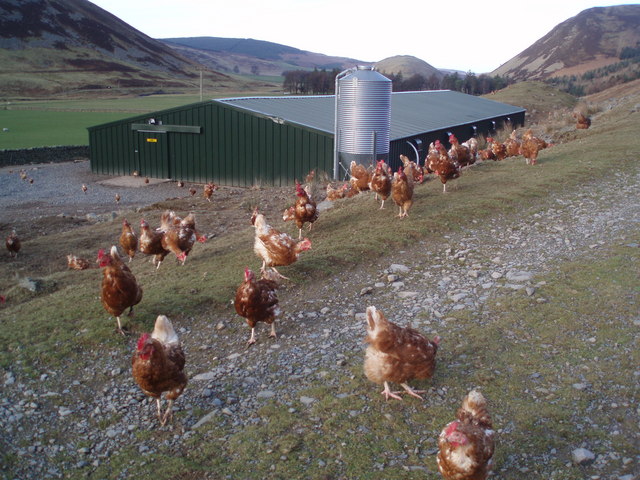|
Food Animal Concerns Trust
Food Animal Concerns Trust (FACT) is a nonprofit organization in the U.S. concerned with food safety and animal welfare. FACT was founded in 1982 as the first U.S. organization devoted exclusively to addressing the public health problems that result from raising farm animals in confined and inhumane conditions. Mission Food Animal Concerns Trust (FACT) promotes the safe and humane production of meat, milk, and eggs. FACT envisions that all food-producing animals will be raised in a healthy and humane manner so that everyone will have access to safe and humanely-produced food. History FACT was involved with some of the first calls for cage-free eggs in the U.S. food supply. In 1984, FACT launched the NEST EGGS Project. The project was designed to demonstrate that farmers would make money selling eggs from uncaged hens. The Nest Eggs Project produced eggs from approximately 675,000 hens without cages on its farms. In 1986, FACT then launched the Rambling Rose Brand Veal Project ... [...More Info...] [...Related Items...] OR: [Wikipedia] [Google] [Baidu] |
Free-range Eggs
Free-range eggs are eggs produced from birds that may be permitted outdoors. The term "free-range" may be used differently depending on the country and the relevant laws, and is not regulated in many areas. Eggs from hens that are only indoors might also be labelled ''cage-free'', ''barn'', ''barn-roaming'' or ''aviary'', following the animal happiness certification policies, also known as "happy chickens" or "happy eggs". This is different from birds that are reared in systems labelled as ''battery cages'' or ''furnished cages''. Legal definition Legal standards defining free range can be different or even non-existent depending on the country. Various watchdog organizations, governmental agencies and industry groups adhere to differing criteria of what constitutes "free-range" and "cage-free" status. United States The United States Department of Agriculture (USDA) requires that egg producers be able to demonstrate that "free range" egg layers have access to the outdoors, thoug ... [...More Info...] [...Related Items...] OR: [Wikipedia] [Google] [Baidu] |
Carbadox
Carbadox is a veterinary drug that combats infection in swine, particularly swine dysentery. Indications Carbadox is indicated for control of swine dysentery (vibrionic dysentery, bloody scours, or hemorrhagic dysentery); control of bacterial swine enteritis (salmonellosis or necrotic enteritis caused by ''Salmonella enterica''); aid in the prevention of migration and establishment of large roundworm (''Ascaris suum'') infections; aid in the prevention of establishment of nodular worm (''Oesophagostomum'') infections. Safety In animal models, carbadox has been shown to be carcinogenic and to induce birth defects. The Food and Drug Administration's Center for Veterinary Medicine has questioned the safety in light of its possible carcinogenicity. Regulation Carbadox is approved in the United States only for use in swine and may not be used within 42 days of slaughter or used in pregnant animals. In 2016, the United States Food and Drug Administration moved to ban its use in por ... [...More Info...] [...Related Items...] OR: [Wikipedia] [Google] [Baidu] |
Animal Welfare Organizations Based In The United States
Animals are multicellular, eukaryotic organisms in the biological kingdom Animalia. With few exceptions, animals consume organic material, breathe oxygen, are able to move, can reproduce sexually, and go through an ontogenetic stage in which their body consists of a hollow sphere of cells, the blastula, during embryonic development. Over 1.5 million living animal species have been described—of which around 1 million are insects—but it has been estimated there are over 7 million animal species in total. Animals range in length from to . They have complex interactions with each other and their environments, forming intricate food webs. The scientific study of animals is known as zoology. Most living animal species are in Bilateria, a clade whose members have a bilaterally symmetric body plan. The Bilateria include the protostomes, containing animals such as nematodes, arthropods, flatworms, annelids and molluscs, and the deuterostomes, containing the echinoderms and ... [...More Info...] [...Related Items...] OR: [Wikipedia] [Google] [Baidu] |

